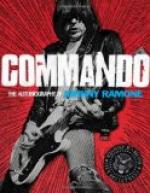In an unorganized army looting is a necessary evil. There are always some of the lower classes who are the ringleaders, and when the commandos reach a house or farm that has already been looted, they join in the looting ’because the burghers are on commando, and they must be well supplied with all necessaries, so as to be able to fight well.’ So we reasoned, and we joined in the looting. I can affirm, to the honour of our burghers, that it was not our intention to plunder, and in the beginning much was done to prevent it. The lower class Uitlander, who joined us for the sake of booty, and not for love and sympathy towards us, was largely responsible for the bad name we got among right-minded people who did not know the facts of the case. It was the same as regards theft. If anyone missed his horse, he had but to look for it among the ‘Irish corps,’ or some other Uitlander corps, and unless he knew his beast well he would fail to recognise it, as both mane and tail would have been cut short by the thief. I do not wish to pretend that we were always free from blame. It has happened that the Uitlander got a very poor horse in exchange for his thoroughbred because a Boer had tied the token of recognition to his own horse and made off with the better one. The truth is that very few men are proof against the demoralizing influence of war, and I will not deny that this war has shown up our many faults; but in my tale I shall be able to take up the cudgels for my people in cases where the rest of the world turned from us because they were disappointed in their expectations of us.
After our departure from Dundee the looting went on freely. Then we began to witness the devastation that is the irremediable consequence of war. Here and there a house had been completely plundered. At Glencoe Junction I entered the stationmaster’s house, a well-furnished house with beautiful pictures, books, and mirrors. Some massive silver mugs and other articles of value were lying about. The family had only just dined, for the cloth was still laid. I ate of the food on the table, wrote a letter home with pen and ink, and left the house. Later on, when I returned, it had been thoroughly looted and some of the mirrors smashed. There were many of the riff-raff, Kaffirs and coolies in the neighbourhood, and in all probability they had done the mischief.
When our commando left Dundee to move in the direction of Ladysmith, part of the Pretoria town commando was sent to reinforce Lucas Meyer, who was to follow the troops fleeing from Dundee with his commando. My brother and I went with it. A terrible thunderstorm came on just then, and during the whole march to Ladysmith it rained heavily. Every moment we expected to come up with the troops, but they had too great a start, and we did not overtake them at all. We were too late again. An English General has said that ’the Boers are brave, and make good plans, but are always twenty-four hours late.’ That can be explained in this way. We were accustomed to fighting against Kaffirs, who hid in woods and mountains, and against whom we had to advance with the utmost precaution, so as to lose as few lives as possible. So we were too cautious in the beginning of the war. We would not make a great sacrifice to win a battle.




